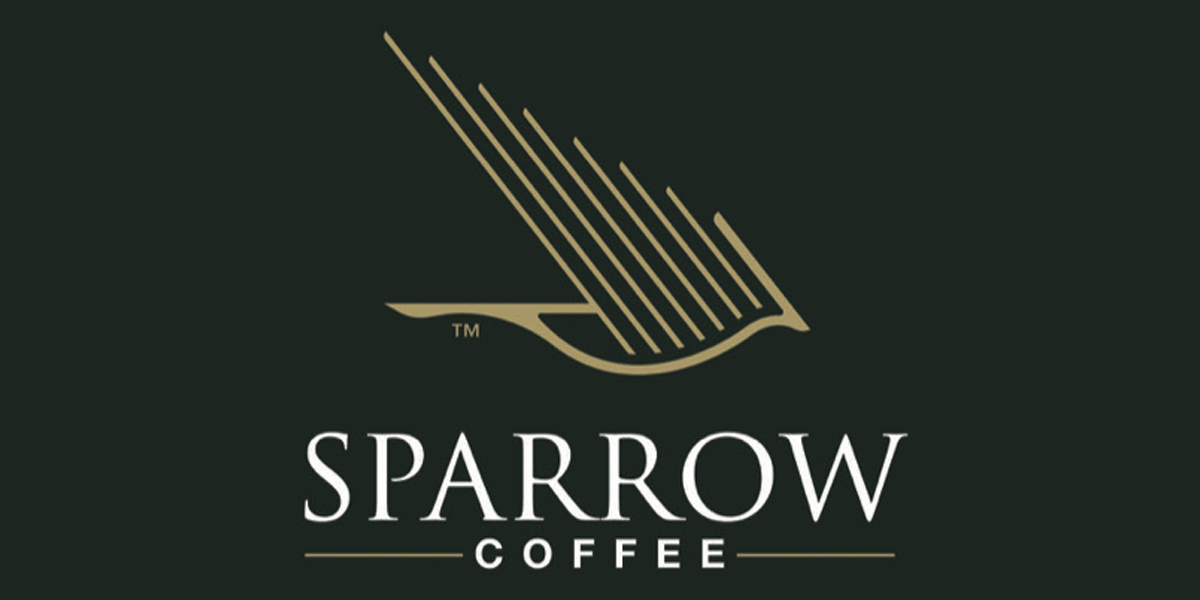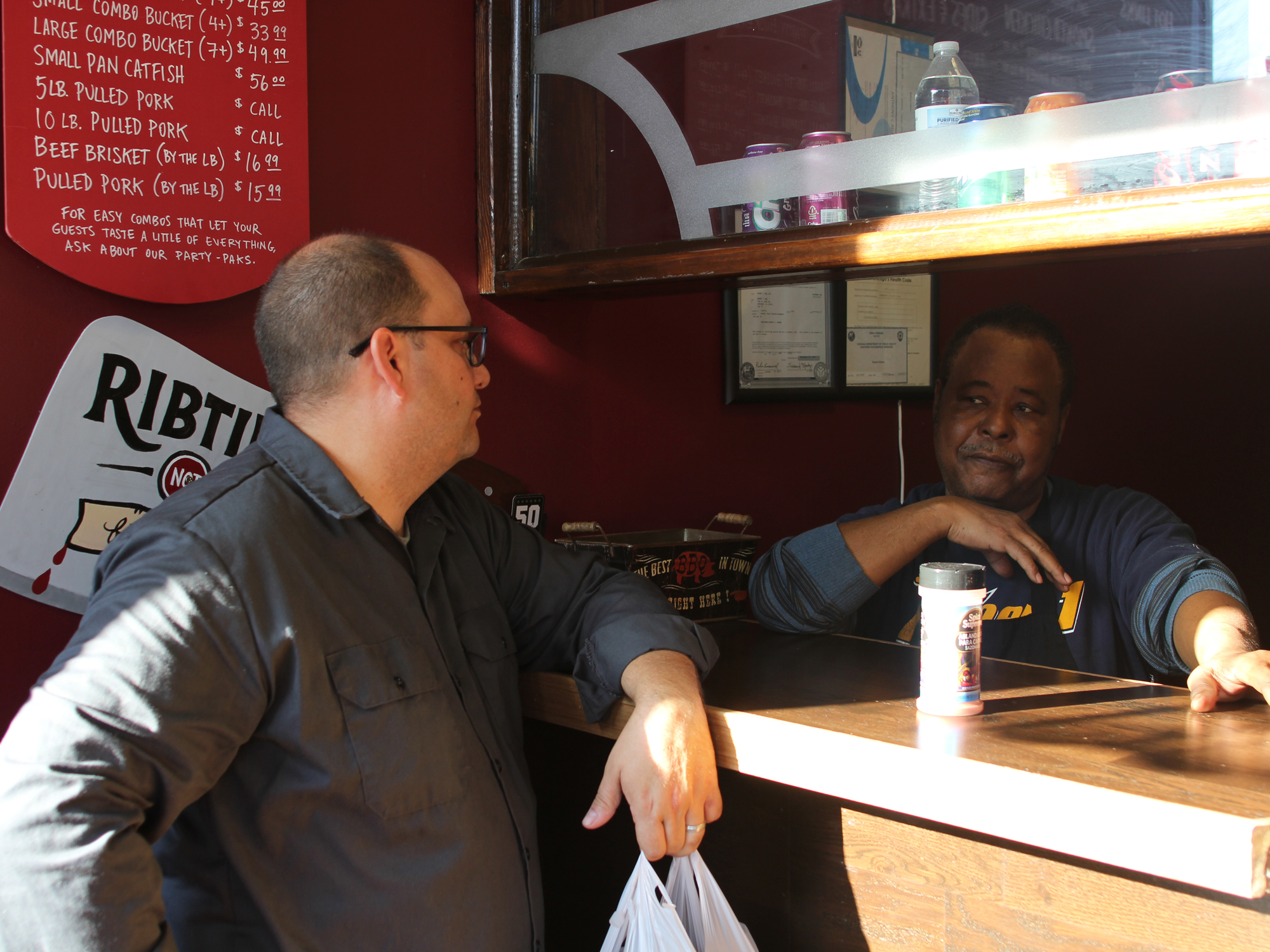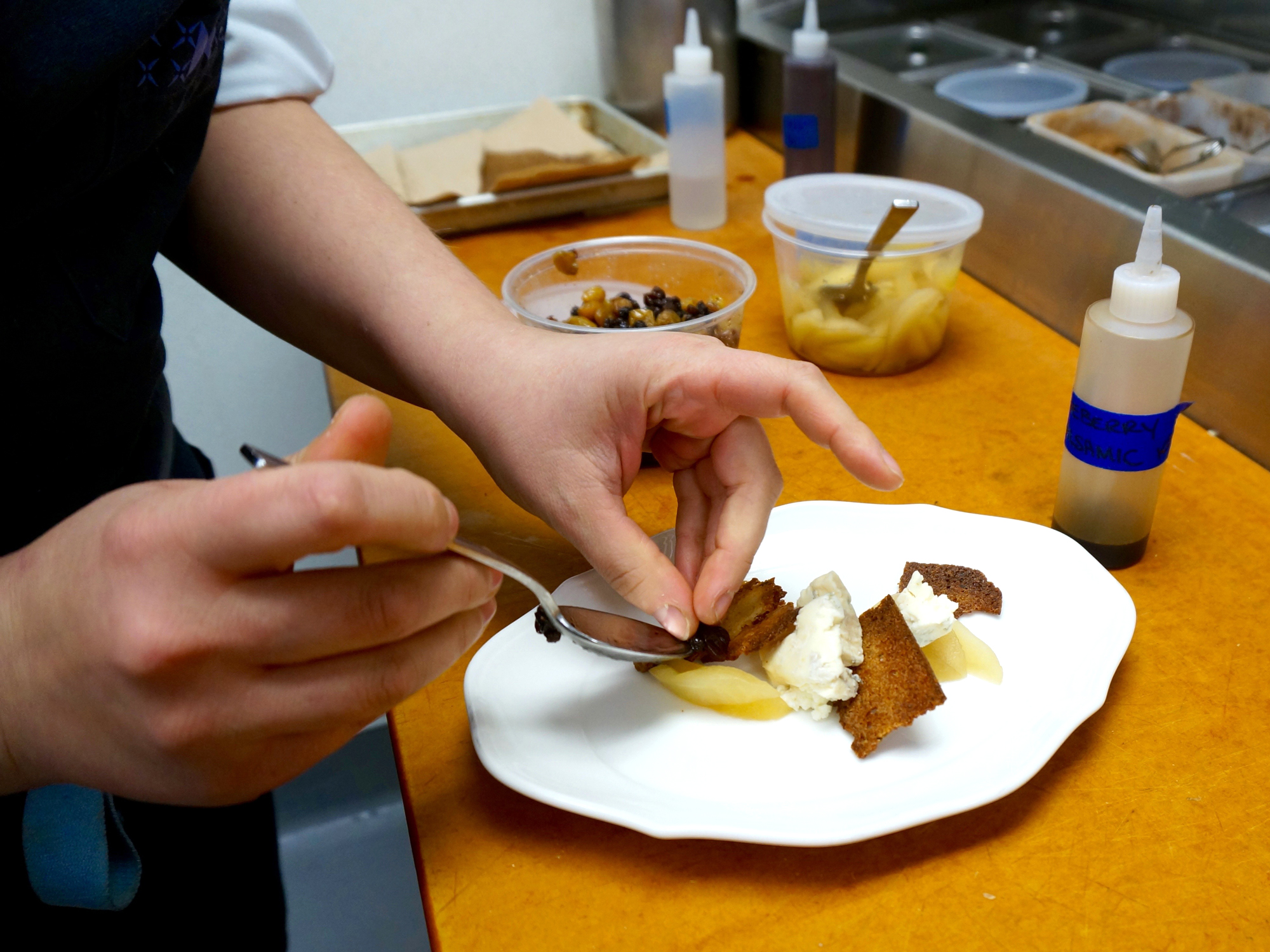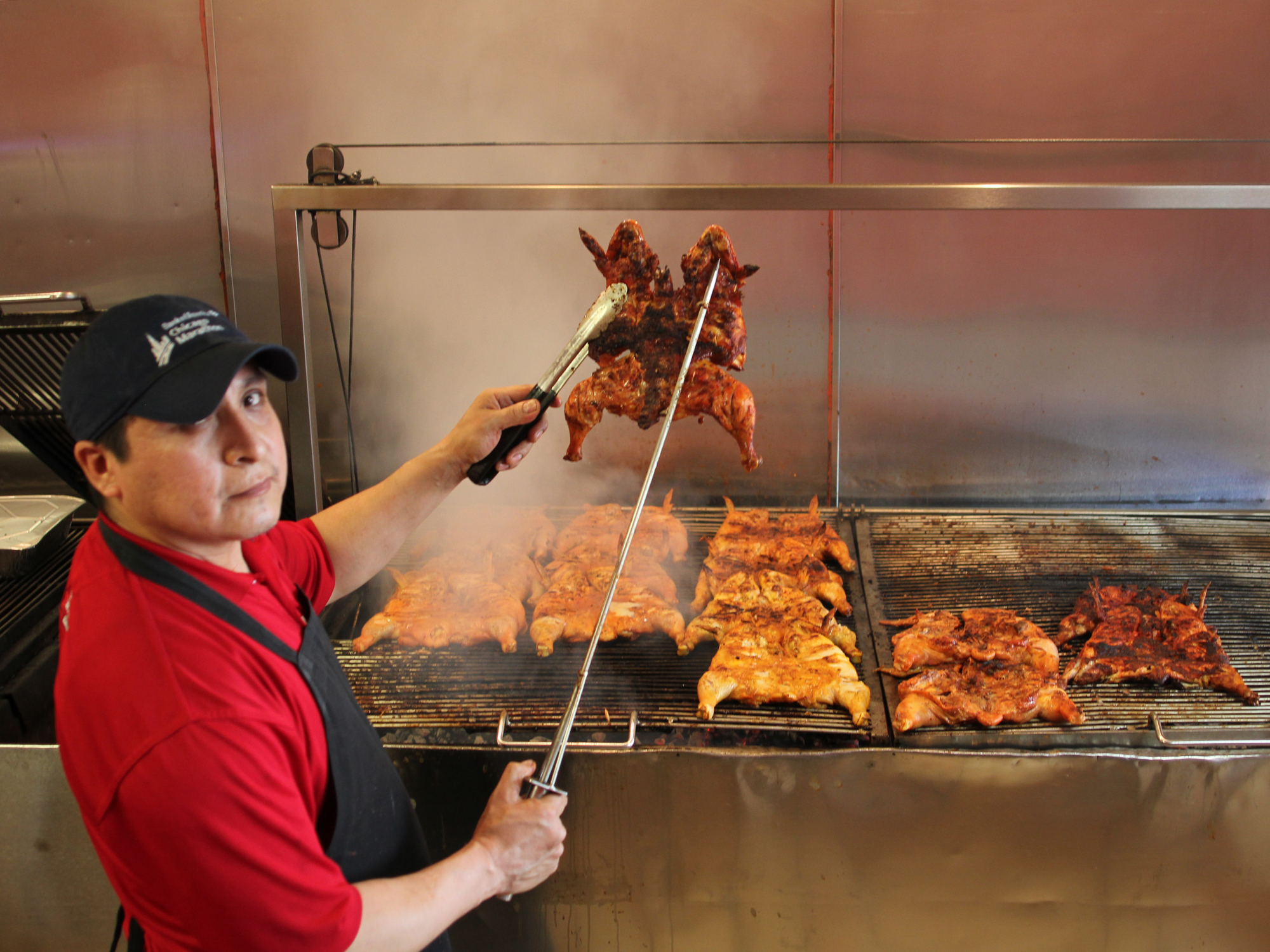NICK SPENCER DOESN’T WANT TO TALK about his new restaurant, Vivial, in terms of himself. He wants to talk about Garrett Christiansen, his Aviary-trained chef: “This is his restaurant, this is his baby, he owns every item on the menu.” And he especially wants to separate Vivial from his previous, British-themed and flavored venture, Spencer’s Jolly Posh Foods—he’s firm that it is an American restaurant, a high quality comfort food place with good cocktails, such as you might find anywhere in the city.
But I think that change is a key to the story anyway. When Spencer first came to Chicago from London (the woman he met, and eventually married, was from here), he went into the business of satisfying his fellow emigrants’ desire for tastes of home—he had a little shop that sold British chocolate bars and favorite brands of crisps and other snacks, and also sold meats like English-style back bacon and bangers that he made and peddled at farmer’s markets. The name perfectly encapsulated his cheekily self-parodic version of Britishness in a box or bag: Spencer’s Jolly Posh Foods.
A year and a half ago, he turned the little shop into a neighborhood restaurant, which served British food from brunch to dinner, as well as high tea full of dainty sandwiches (and a rigorously proper pot of tea; he was never kidding around about that). But two things happened—Jolly Posh the line of meat products grew as a wholesale line, but Jolly Posh the restaurant evolved to where it was doing best with dinner and drinks, not quaint English things.
And another thing happened, I think—Nick Spencer lived in Lakeview long enough that he stopped looking at it as a place that needed him to bring it British food. Instead, he looked at Southport, land of bars and shoe shops, as a street that could use a better restaurant, period—”We’re on a very family-oriented street and in a very family-oriented neighborhood. Yet there aren’t many options for adults. Vivial is predicated on offering a more adult, cocktail-oriented experience on Southport.” By the time Jolly Posh shut down to reconcept in October, he was no longer the ambassador for English junk food. He was a Chicagoan who thought his neighborhood needed a better place to eat, period.
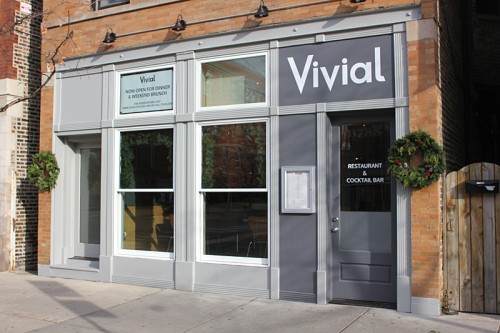
GARRETT CHRISTIANSEN IS LIKE A LOT of young cooks who set their eye on learning under a big name chef—he was working in Fort Lauderdale at a nice enough restaurant, but when the owner was looking to change directions, both Christiansen and the chef who’d hired him had the idea of aiming for the top of fine dining. “You could see in our cooking styles that I was going to go Achatz and he was going to go Keller,” he says, and that’s exactly what happened.
He moved to Chicago and got hold of Micah Melton, beverage director of The Aviary, who invited him in to stage. None of Grant Achatz’s kitchens had a place for him at that moment, so he wound up bouncing around, getting a view of the whole operation. “I worked cocktails there for three months before I ever put on a chef’s apron. I spent weeks at Alinea—it was my job to set up Chef Achatz’s station every morning, make sure his knives were in the right order.” He worked at Next, and then for Andrew Graves and Andrew Brochu on the food side of The Aviary, serving as pastry chef (one of his recipes traveled to Vivial—a beer bread he came up with for an Aviary bite). “I got experience in all of their restaurants, which made me much more well-rounded,” he says.
In time, though, he wanted a different kind of experience of a restaurant, including the business side. Matt Hutchins, another Brit who had worked at Element Collective restaurants like Kinmont and Old Town Social, joined Jolly Posh shortly after it opened as general manager, and he recruited Christiansen last February with a bit of puffery that was also a challenge: “This is your Trio, do with it what you want.” Realistically, Jolly Posh wasn’t on par with Grant Achatz’s first restaurant, which had already been among the top restaurants in town for years (and also didn’t sell Jaffa Cakes and Maltesers at retail).
But Christiansen accepted the responsibility for raising Jolly Posh as high as he could, and one of the first things he did was announce that they were going to an all-scratch-based, made-in-house kitchen—which is standard enough for a place with any ambition, but something of a major shift for a place which had been touting its jarred ingredients imported from England not long before.
Gallery: American comfort food and cocktails at Vivial
Instead Christiansen brought in product from farmers and foragers he knew. The summer saw ramps on the menu—if that doesn’t make you a Chicago restaurant, what does? “It caught on with the dinner crowd, the lunch crowd; the plating styles, the flavor combinations. Matt and I had collaborated with Moody Tongue,” the Chicago brewery specializing in “culinary brewing” of food-complementary beers, and they soon had beer and cocktail pairings with the dishes.
So how does that Aviary training play out in a neighborhood spot on Southport? “In the back I have all the hydrocolloids, I still have immersion circulators, we’re making clear ice just like The Aviary does,” Christiansen says. “But we’re not putting that out there. You’re not going to know what’s sous vide. You’re not going to know the powders I use in the sauces, they’re not specified on the menu. It’s solely helping textures, or presentations. It’s not anything where we’re like, ‘Hey, we can do this and we’re the 100th molecular gastronomy restaurant!'”
“They’re tools,” he says. “Just like a knife, just like a fryer. An immersion circulator is labor. That is an employee—I don’t have to have someone that’s watching it. I can close the restaurant and go home and know my confit is working.”
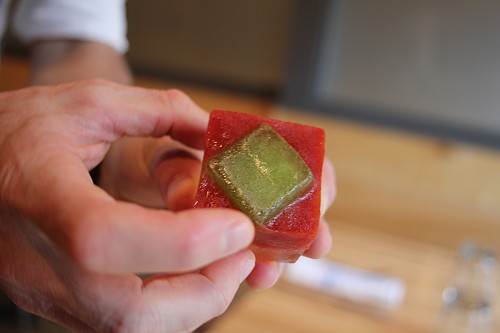
Cucumber and tomato juice ice cube
He’s right that the menu items looks sophisticated, and yet normal and approachable at the same time. You get a sense of how they’re trying to be both of those things at once when you look at two special dinners on the menu—one is a $65 multicourse tasting menu; the other is a $10 fried chicken dinner on Sunday nights.
But things lean more toward showbizzy with the cocktails, as Hutchins walks out with a couple of metal pans holding perfect blocks of clear ice—some of which have tomato juice and cucumber juice frozen into them for use in the Bloody Mary. What he wants to show me is that as the ices melt into a drink, they change its flavor without diluting it. It’s a technique that spread quickly in Chicago after, yes, The Aviary started doing it in particular, and it looks very modernist. But as Hutchins shows me how he rigged an easy way to do it, he also makes it seem like something approachable enough to do for a party, too. I’m pretty sure it’s something they haven’t seen on Southport, anyway.
AT THE END I ASK NICK SPENCER to sum up Vivial in another Britishism, like “jolly posh.” He thinks for a minute. “Well, convivial, that’s not a Britishism,” he says. He thinks a minute more. “I don’t have a Britishism—this place is intentionally not British,” he says. “This place is really American, that’s important to us. So my word for Vivial would be awesome,” he says, pronouncing it like it’s the director of Citizen Kane. “That’s American. It’s awesome.”
Michael Gebert is more jolly than posh as editor of Fooditor.
Cover image: l. to r., Matt Hutchins, Nick Spencer, Garrett Christiensen
Latest
Join the Discussion
After you comment, click Post. If you're not already logged in you will be asked to log in or register with Disqus.









